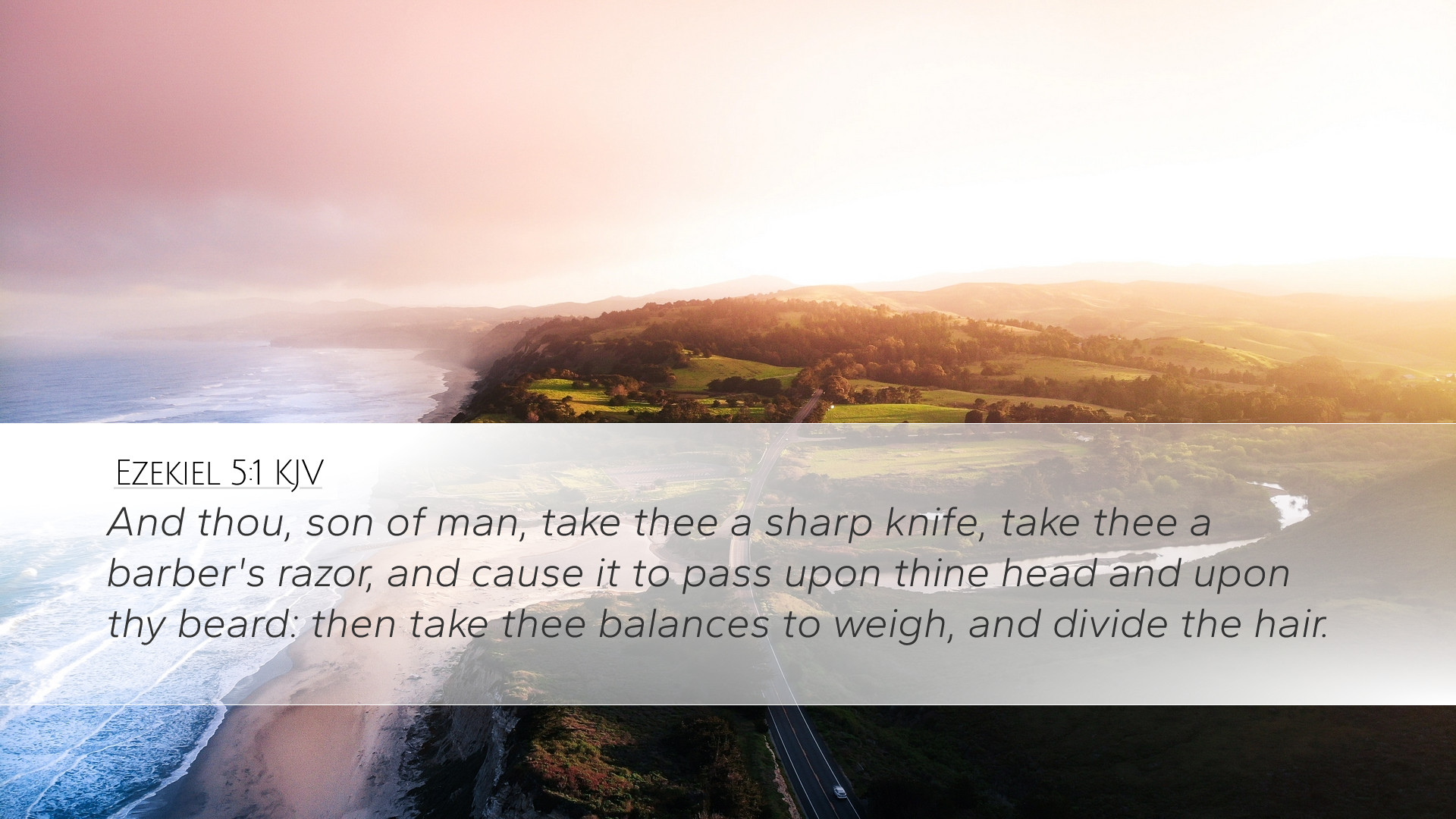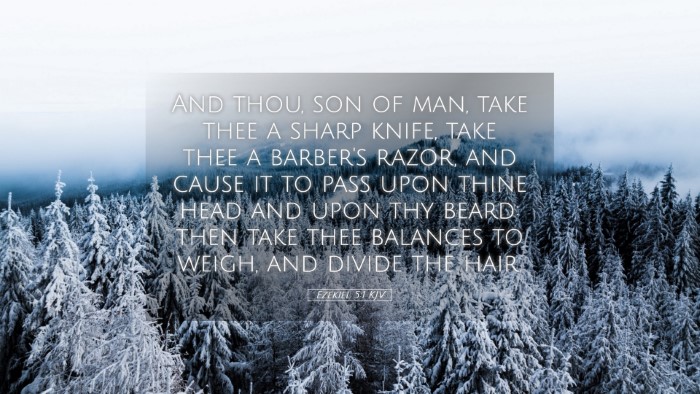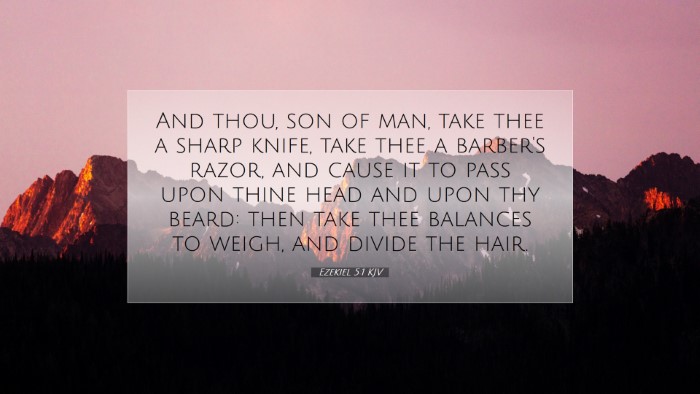Ezekiel 5:1 - A Comprehensive Commentary
Bible Verse: "And thou, son of man, take thee a sharp knife, take thee a barber's razor, and cause it to pass upon thy head and upon thy beard: then take thee balances to weigh, and divide the hair."
Introduction
The verse Ezekiel 5:1 serves as a pivotal point in the prophetic ministry of Ezekiel. The instructions given here are symbolic and laden with meaning, intended to manifest the severity of God's judgment upon Jerusalem and its inhabitants. As we delve into the insights of various public domain commentaries, we will uncover the layers of significance contained within this command.
Historical Context
The ministry of Ezekiel took place during a critical period for Israel, particularly following the Babylonian exile. The people of Judah were grappling with their unfaithfulness to God and the resulting consequences. The actions commanded in this verse reflect a divine message being delivered through the prophet, utilizing vivid imagery that would be understood in the cultural context of the time.
Matthew Henry's Commentary
Matthew Henry highlights the symbolic act of shaving the head and beard as a representation of humiliation and shame. In the ancient Near Eastern context, hair carried great significance, often associated with dignity, authority, and the covenant relationship between God and His people. By cutting the hair, Ezekiel illustrates the utter destruction that would come upon Jerusalem as a result of its idolatry and rebellion against God.
Henry elaborates that the sharp knife or barber's razor symbolizes the precision and inevitability of God’s judgment. The act itself signifies a severing of ties with the unholy practices that had permeated the land. The weighting of the hair in balances, according to Henry, suggests the careful accounting of God's justice—He weighs the actions of His people against the righteous standards of His law.
Albert Barnes' Notes
Albert Barnes provides insight into the act of dividing the hair. He notes that the division represents different fates awaiting the people of Jerusalem. Some of the hair was to be burned, some smitten with a sword, and some scattered to the wind. This fragmentation symbolizes the diverse and tragic outcomes of God’s judgment on the city—destroyed, defeated, and dispersed. Barnes emphasizes that this vivid imagery must have struck fear and seriousness into the hearts of the listeners.
Moreover, Barnes draws our attention to the significance of the razor being associated with a “sharp knife.” This suggests that the judgment is not only imminent but also precise and severe, executed with perfect wisdom. The razor signifies the thoroughness of God’s purification process, where the unclean will be cut off, and only a remnant might remain, as seen later in the text.
Adam Clarke's Commentary
Adam Clarke takes a pastoral approach, bringing attention to the emotional weight carried within this prophetic act. He argues that the symbolic action is not merely about judgment but also highlights God's deep sorrow over the disobedience of His people. Clarke notes that the act of shaving indicates a loss of identity; God’s people were meant to be set apart and their actions had brought about a disgrace that necessitated this public demonstration.
According to Clarke, the use of balances conveys not only justice but also mercy, as it balances the weight of sin with the possibility of restoration. He underscores that the end goal of such drastic measures isn't solely destruction but rather a pathway toward repentance and renewal for those who would heed the warning.
Theological Implications
The theological implications of Ezekiel 5:1 are profound and multifaceted. The verse serves as a stark reminder of God's holiness and justice. The act of shaving signifies that God will purge His people of sin and its consequences, reflecting His character as both a righteous judge and a restoring shepherd.
- God's Judgment: The cutting off of hair as a symbol of impending judgment emphasizes that God's patience has limits. His commands are serious and must be heeded, lest one face dire consequences.
- Hope for Restoration: In the midst of judgment, there lies the opportunity for repentance. The remnant that survives symbolizes hope and God’s commitment to His covenant people.
- Human Identity: The act reveals the importance of identity amongst God's people. Their relationship with Him defines who they are, and abandonment of that relationship results in shame and loss.
Conclusion
Ezekiel 5:1 is a poignant illustration of the interaction between divine judgment and human responsibility. The directives given to Ezekiel not only serve as warning signs to the people of Israel but also remind contemporary readers of the serious implications of turning away from God. Through the insights of Matthew Henry, Albert Barnes, and Adam Clarke, we gain a deeper understanding of the dramatic imagery and theological truths encapsulated in this verse. Whether for pastoral guidance, academic study, or personal reflection, Ezekiel 5:1 calls believers to contemplate the seriousness of sin and the holiness of God, encouraging a return to faithfulness and reverence in our lives.


